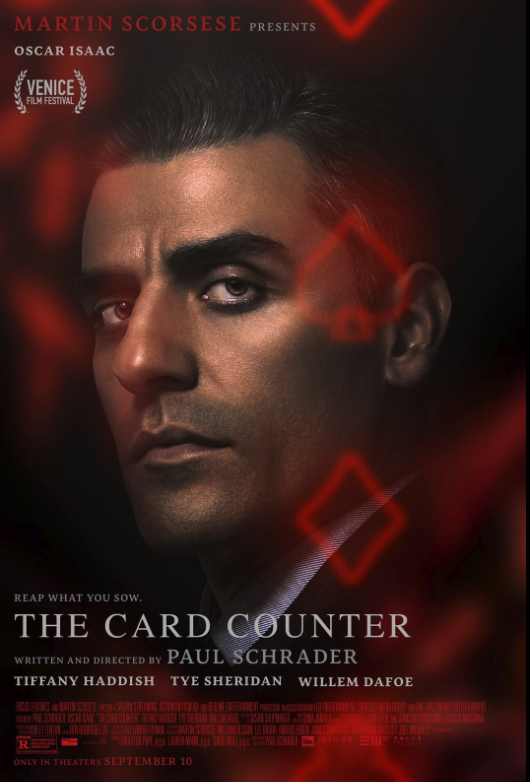Dish of the Day
Just some film musings of a more succinct, spontaneous and sometimes seditious nature:
Monday, January 30, 2023
As with yesterday’s “Dish of the Day”, today’s has more brief reviews of mine that are inspired by posts in various film related Facebook chat rooms. This includes the Cinema Cafe group (all readers are encouraged to join here: https://www.facebook.com/groups/902349343110685). My thoughts on the following motion pictures typically form an extreme minority view, occasionally even the lone dissenting voice.
Guess Who’s Coming to Dinner (1967)
Stanley Kramer that’s who! Kramer hammers home his 'issues' (comparable to what Steven Spielberg often does) depending on how important they are and here it looks like he's been pounding away at this sermon his entire career. The couple appear to have been created solely for their likability (aside from the fact that one is black, the other white). Spencer Tracy’s finale speech is presented as though he’s still in his Judgement at Nuremberg character. The director’s condescension is compounded by the realisation that this particular 'dilemma' is discovered at the conclusion by the parties concerned to not be as big a deal as they originally thought putting us ahead of Kramer, his characters and the earth shattering subject matter. It's almost as if, at the end, we feel like shouting back “I told you so!” Considering the front to back dramatic turnaround, perhaps a better title for this film would have been ‘Kramer versus Kramer.’ See the earlier The Defiant Ones (1958) about another black and white couple from the same director (who this time atypically puts down his hammer) instead.
The Missouri Breaks (1976)
A few words to Marlon Brando’s detractors: “Give me a Missouri break!” The famous thespian’s co-star Jack Nicholson not only said he was the world’s best actor, he didn’t understand those who thought otherwise. Brando’s improvisational hijinks (the director finally gave up trying to direct him) is the only reason to watch this otherwise tepid affair. Once again, the actor shows a knack for giving his part (e.g. he takes an opposite approach toward his role in Julius Caesar) the attention it deserves. The romance between Jack Nicholson and ? is, as you can see, instantly forgettable. The horse rustling is, dramatically speaking, as lifeless as an empty corral. Amazingly, the words on the poster have extracted every bit of significance from the film for you. If Brando had not been cast, this film’s title would never come up for discussion… anywhere… by anyone. Without Brando’s enlivened characterisation, it would be as though The Missouri Breaks was never made.
The Card Counter (2021)
Writer/director Paul Schrader is so damn good at drawing us in but his problem with The Card Counter (and it is a semi-recurring one) is that he is too much above the fray. He presents us with a main character, William Tell played by Oscar Isaac, who is seriously (that's seriously with a capitol S) afflicted by his past but the filmmaker cannot connect Tell’s turbulent psyche in any meaningful way to his present day conduct. It’s difficult to shuffle apathy with desire and not drop some cards especially when both behaviours are at such extreme levels. Schrader needs to show us by not being so timid or aloof… 'go for it' dramatically speaking as he did with his Taxi Driver screenplay by getting inside his character’s mind. This, instead of making him so damn artsy enigmatic he winds up isolating his audience. I get the 'card counting' is about control like what Tell used to do (except now no one gets hurt) but beyond that, any conflict generated acts like a giant guilt vacuum that just keeps sucking everything inward. Nothing is tangible, concrete or consistent. For example, ***SPOILERS*** Tell just leaves the last big card game and a relationship that finally means something, to settle a score he himself did everything in his power to keep a protege from enacting. Okay, he connects with his girlfriend again at the story’s conclusion but from inside prison. Was it worth it? And what did happen in that room anyway (between characters portrayed by Isaac and Dafoe) or does it really matter? And if it doesn't, why present this crucial decisive act of retribution as if it does?
(Out of 5 Treasure Chests)
Nothing too exciting on TCM to report (at least by this writer).
All responses are not only welcomed but encouraged in the comments section below. Hope to see you tomorrow.
A.G.



